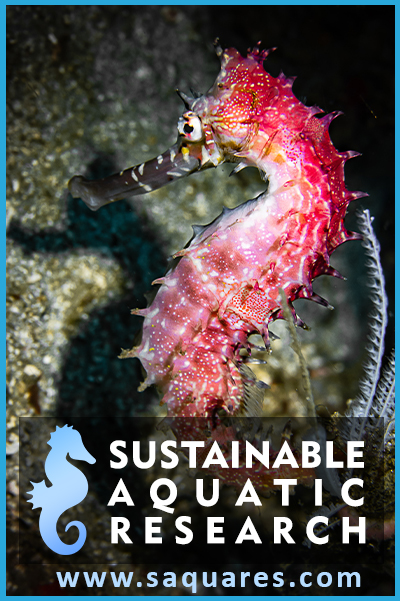
Sustainable Aquatic Research
Yazarlar: ["Abu Bakker Siddique Khan", "Md. Amirul Islam", "Md. Rahamat Ullah", "Mousumi Akhter", "Farhana Yasmin", "Aovijite Bosu", "Md. Monjurul Hasan", "Khandaker Rashidul Hasan", "Yahia Mahmud"]
Konular:-
DOI:10.5281/zenodo.7881928
Anahtar Kelimeler:Bay of Bengal,Gracilaria tenuistipitata,Raft shape, Water depth
Özet: Research was carried out to investigate the impact of bamboo raft models (shapes) and water depths on the growth and production of the red seaweed, Gracilaria tenuistipitata. The bamboo raft models of a square (1.5 m x1.5 m) and a triangular raft (1.5 m x1.5 m x 1.5 m) with three different water depths i.e., surface (0 m), 0.5 m, and 1 m were used in this experiment. Water quality parameters were monitored fortnightly. The maximum daily growth rates of 2.34 ± 0.89 and 2.01 ± 0.69% d-1 were found in the square and triangular rafts respectively, at 0.5 m water depth after 60 d of culture period. The minimal DGR (Daily growth rate) was recorded in both the square and triangular rafts after 15 days of culture at the water depth of 1 m. The maximum biomass yield recorded was 7.14 ± 2.17 and 5.89 ± 2.56 kg fresh weight m-2 at 0.5 m water depth in the square and in the triangular rafts, respectively. Considering the findings of the present study, a conclusion might be drawn that G. tenuistipitata can be grown on the square raft at a water depth of 0.5 m to get better biomass yield.